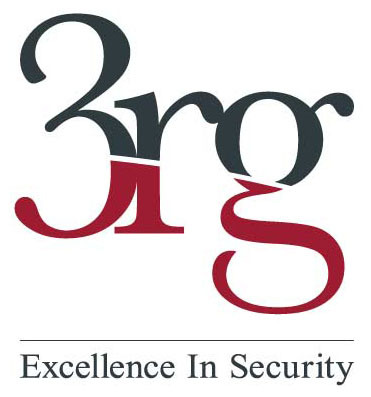Maritime Security Operator (MSO) Training Provision
Source: 3RG Security 
There continues to be a great deal of disagreement and uncertainty as to just what constitutes effective training for personnel looking to work in the Maritime Security sector and certainly for those with a potential role involving anti-piracy operations.
Frustratingly, the answer remains inherently simple but continues to be masked by elements of bureaucracy and misguided advice. 3rg have been working as a part of the [UK] Security in Complex Environments Group (SCEG) to try and address the key driver issues in order to create clarity for both Private Maritime Security Companies (PMSCs) and for service leavers looking to gain the credentials necessary for work as Privately Contracted Armed Security Personnel (PCASP).
MSO v SSO Debate
Many PMSCs have historically insisted upon personnel obtaining the ISPS Ship Security Officer (SSO) qualification, so that they can demonstrate to client companies the people who will be deploying on their shipping fleet are suitably ‘trained’.
The SSO course, which ‘sounds’ like it fits the bill, was never designed to meet the needs or the conduct of anti-piracy operations, a fact that has now become more widely accepted throughout the Maritime Security sector and is in fact understood by more and more shipping company representatives.
A number of Maritime Security Operator (MSO) courses have been developed to address the need for relevant, task-specific training. This is undoubtedly a positive move but brings with it the potential for further abuse.
MSO/SSO Scenario Examples
Below are two examples of how SSO and MSO training may be applied in practice:
SSO: a ship enters a port with a raised ISPS security level (e.g. Level 2). The ship’s SSO must now instigate further security measure on–board in line with the ISPS code. This may include: increased screening of goods being brought on board, restricted access to areas of the ship, restricted shore leave for ship’s crew, conduct of ships searches and so on.
MSO: a vessel has been identified on the radar at a distance of 8 Nautical Miles with a CPA (Closest Point of Approach) of 0.2 of a Nautical Mile. As the vessel continues to close, the Maritime Security Team Leader requests that the Captain alters the ship’s course. After
altering course to Port the tracked vessel also alters course again reducing the CPA. The Maritime Security Team is ‘stood-to’ donning body armour and weapons, etc.
As you can see, the examples above create very different images and require a very different skill set for the people involved. The SSO role is indeed an integral part of general Maritime Security but is clearly not relevant with regard to an anti-piracy role. It is therefore critical that the right balance of training is applied for the role the course attendee will be undertaking.
MSO Training Syllabuses and Standards
A number of training companies have now seen the perceptible shift towards dedicated MSO-type training for the Maritime Industry (in the anti-piracy role). At present, there are no industry guidelines as to how long and what this training should involve. This present situation is currently being addressed within the SCEG in an attempt to alleviate vast differentiation between training providers.
 |
|
3 RG Security Delivering MSO Training
|
Service leavers should be aware of additional ‘bolt-on’ courses or full courses which have switched names (SSO to MSO) in order to ‘accommodate’ industry demand.
The ‘bolt-on’ courses seem to give scant coverage of best practice and detail of how anti-piracy operations should be conducted – A little knowledge can be a dangerous thing!
RADAR Training
One other area training providers are now targeting is Radar qualifications (largely RYA). Again, this sounds good in principle but applying information taught on a small craft ‘bobbing around’ in the Solent is very different to the systems that will typically be seen on-board commercial tankers.
Radar information taught should include radar tactics for the Maritime Security Operator on an ARPA system (Automatic Radar Plotting Aid) including both S band & X band systems and overlay programs such as AIS (Automated Identification System). This gives the MSO vital information, allowing much needed time for a Graduated Response to a potential piracy threat.
Course Accreditation
At present there is no [UK] nationally recognised qualification within the Qualifications and Credit Framework (QCF) that relates directly to becoming a PCASP (again this is something currently being addressed in the UK SCEG).
Some courses are advertised at level 3/4 in relation to the UK qualifications framework but these courses (although intimated as being so) again are not standalone qualifications and do not give a nationally recognised qualification (they give a small amount of points towards a degree level course for those people wishing to study for security management degrees).
ELCAS Funding
A number of training providers have now attempted to ‘shoe-horn’ largely irrelevant Maritime Security qualifications together in order that attendees can claim course costs through ELCAS funding (ELCAS is the UK MOD’s Enhanced Learning Credit Administration System which allows service leavers to claim funding for recognised courses – level 3 and above).
Although this appears to be a win-win situation for service leavers, they are left largely frustrated and disappointed at the realisation that the qualifications they now have do not make any difference to their employment suitability as PCASP.
Enhanced Learning Credits are your entitlement for serving within UK Armed Forces – you have earned them! They are not for rogue training providers to claim by misleading service personnel displaying an attitude that it is free money so you should not care!
Service Leavers Summary and Advice
When looking for suitable training at present service leavers should take into account:
- Training needs to be specific to the role they looking to undertake so they have a ‘real working knowledge’
- Try to ensure the course you undertake is recognised by the Maritime Security companies
- The MSO training syllabus they undertake should be cover a minimum of 3 days (not including SSO course material - It is doubtful anything less than this duration would allow enough information concerning the role of the PCASP to be passed on).
- Be aware of ‘combined’ courses which maximise ELCAS funding
- Be aware at present of advertised ‘qualifications’
- Check the background and experience of ‘Industry Experts’ who will be passing on their ‘well found’ knowledge!!
For further information and advice please contact 3rg directly – training@3rg.co.uk
 Subscribe to our newsletter. Receive a weekly round-up of all piracy-related news.
Subscribe to our newsletter. Receive a weekly round-up of all piracy-related news.
OCEANUSLive.org
Information, Security, Safety; Shared
Submitted by Team@oceanuslive.org